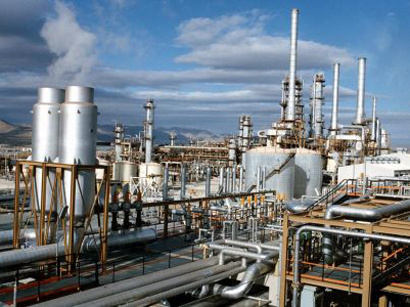Tehran to take up petchem exports to Europe

By Sara Rajabova
Iran plans to resume exports of petrochemical products to Europe, which have been banned under the US-led sanctions, in near future.
Iran’s Jam Petrochemical Company has recently announced that a consignment of linear low density polyethylene (LLDPE), measuring 2,000 tons with a total value of over $ 2 million, will be shipped to Belgium soon, Shana news agency reported.
The company said the resumption of petrochemical exports to Europe coincides with the revival of a shipping route for similar exports to Turkey.
International clients - under a tight regime of sanctions - were banned from buying petrochemicals from Iran over the past few years.
However, following the breakthroughs in nuclear talks between Iran and the P5+1 group of world powers the ban was lifted last year.
Iran has exported more than 7.8 million tons of petrochemicals worth more than $5.1 billion in the six months ending September 22. Iran produced 40 million tons of petrochemicals in the last calendar year (ended March 20), with $ 9 billion worth of its products being exported.
The country, which is a major oil exporter, plans to increase its petrochemical exports to $ 12 billion this year. Iran has significantly expanded the range and volume of its petrochemical production over the past few years.
Earlier, world oil giants, including Royal Dutch Shell, British Petroleum (BP), Malaysia's Petronas, Spain's Repsol, Russia's second-largest oil producer, LUKOIL, France's Total and Italy's Eni have expressed interest in returning to the Iranian market following a partial relief in the anti-Iran sanctions that come after Geneva deal in November.
Iran sits atop one of the world's largest natural gas reserves of over 33 trillion cubic meters and, in the near future, the country is set to increase its gas processing and transfer capacity to one billion cubic meters per day from the current level of 600 million cubic meters per day.
